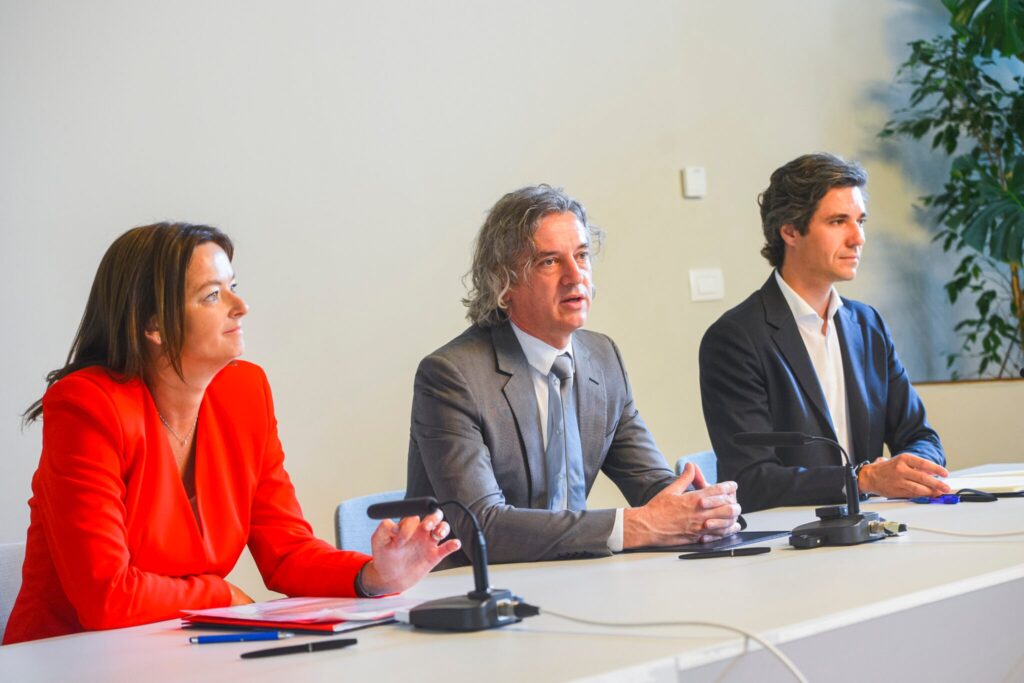“We, Presidents of Central and Eastern Europe, countries whose leaders have visited Kyiv during the war and witnessed with their own eyes the effects of Russian aggression, cannot stay silent in the face of the blatant violation of international law by the Russian Federation,” reads the beginning of the declaration, signed by the Presidents of Poland, Romania, the Czech Republic, Slovakia, Estonia, Latvia, Lithuania, Northern Macedonia, and Montenegro. The country that is conspicuously absent from the list is Slovenia, which, with the rise of the government of Robert Golob and Foreign Minister Tanja Fajon, has once again sunk into international anonymity, incompetence and flirtations with the Russian Federation.
The statements by the Presidents in the region, which also includes Slovenia referred to the illegal and illegitimate annexation of four Ukrainian regions to the Russian Federation, following a Kremlin-orchestrated spectacle for the domestic public, which they called referendums. The Presidents unequivocally rejected the annexation. “We do not recognise and will never recognise Russian attempts to annex any Ukrainian territory,” they said in a statement.
The signatories of the declaration went on to say that they support the decisions taken by NATO at the 2008 Bucharest Summit. At that summit, Western leaders committed themselves to an open-door policy, which was designed to ensure that countries such as Ukraine and Georgia also had a long-term perspective on joining the alliance. In retrospect, it was a mistake not to have admitted these countries to the alliance at the time. And just as a point of reference, the US was in favour of the immediate accession of both countries, but France and Germany were opposed.
The support of the signatories of the declaration is particularly significant given that Ukraine recently applied for admission to the alliance – in fact, it did so immediately after the declaration of “independence” of the Ukrainian regions. It is not yet clear how this application will play out at this point in time. When NATO Secretary-General Jens Stoltenberg was asked about this at a recent press conference, he said that, at this point, there is a consensus among the allies that NATO is not involved in the conflict at this point, but that they are committed to helping Ukraine to exercise the right that it has under international law, that is, the right to territorial integrity.
Strong words from the Presidents
“We support Ukraine in its defence against Russia’s invasion, demand Russia to immediately withdraw from all the occupied territories and encourage all Allies to substantially increase their military aid to Ukraine. All those who commit crimes of aggression must be held accountable and brought to justice,” reads the conclusion of the declaration of the Presidents.
Why is Slovenia not on the list?
We are rightly wondering why Slovenia is not among the signatories of the declaration. There are many possible reasons for it – from indifference to incompetence and, ultimately, the (not so) coveted pro-Russian orientation of the Slovenian government. Given the information coming from the Ukrainian Prime Minister’s office, the latter is the most likely possibility. According to the information currently available, 12 countries support Ukraine joining NATO so far, including the USA, Germany and Canada. Slovenia, however, does not appear on this list.
Is Slovenia on the road to international isolation?
The Slovenian left, when it was still in the opposition, was highly critical of the foreign policy orientation of the government of the time. The far left (just like today) advocated the unilateral disarmament of the victim of aggression and its immediate submission to the aggressor. The President of the Social Democrats party, Tanja Fajon, first advocated blocking Ukraine’s accession negotiations, then criticised the former Prime Minister Janez Janša for visiting Kyiv. When she became the Minister of Foreign Affairs, she submitted to the dominant discourse of the European Social Democrats, proclaimed herself a friend of the Ukrainians, and followed this up with an outright comical visit to Kyiv, in which she unsuccessfully tried to imitate the former Prime Minister, but failed. Meanwhile, the current Prime Minister Robert Golob largely failed to make any coherent statements in the election campaign, and after his swearing-in, he failed miserably at his first international interview with the BBC.
When Ukrainian President Zelenskyy formally applied for NATO membership, both the current Prime Minister and the Foreign Minister had a golden opportunity to put Slovenia back on the international map as one of the first supporters of the victims of aggression. It was an opportunity to stand up for the weaker, for the victim, but they failed. Well, maybe Slovenia will end up on the international map after all, but for the wrong reasons. Given the clear Russophile background of all the political parties in power, it could well be that Slovenia would end up being one of the last countries to oppose, if not prevent, Ukraine’s accession.
Gal Kovač


